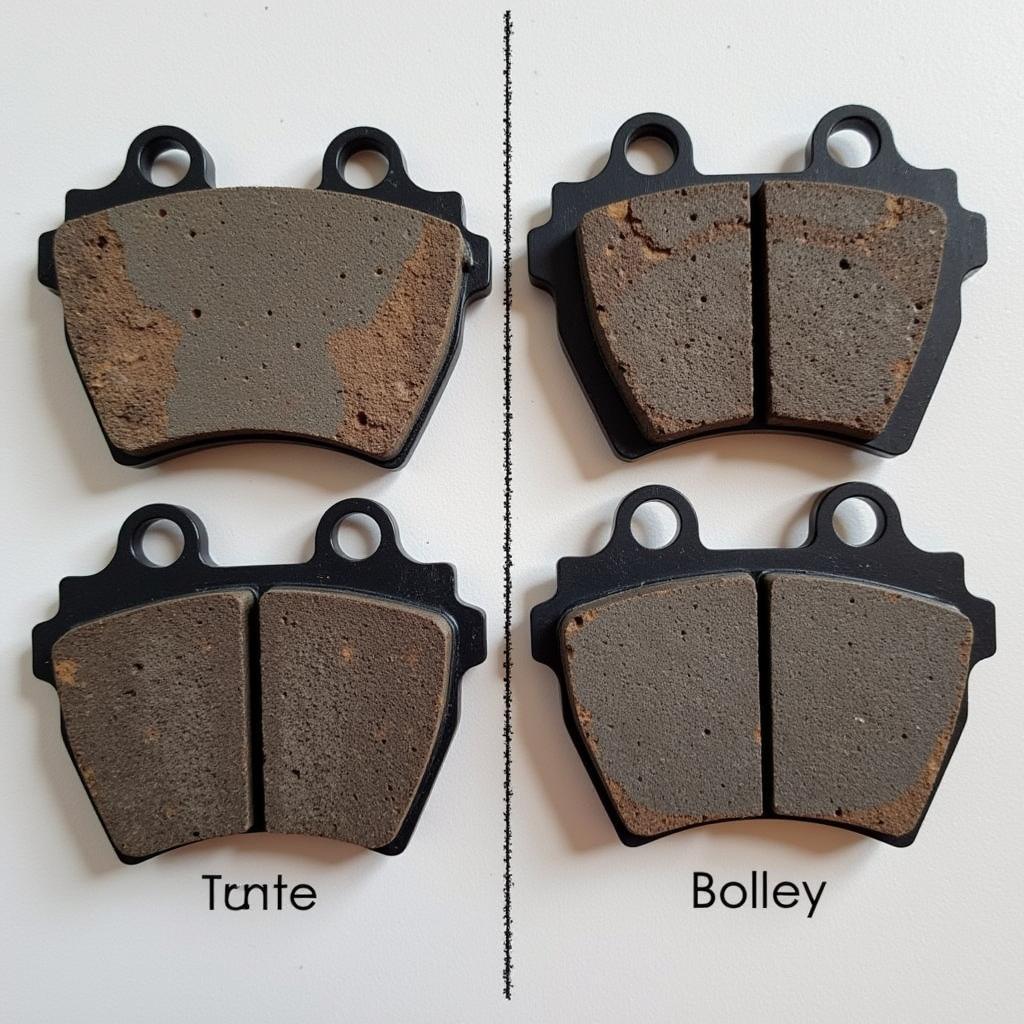The brake warning light on your 2001 Jeep Cherokee is a crucial safety feature, designed to alert you to potential issues within your braking system. Ignoring this warning could lead to reduced braking performance or even complete brake failure. This article will guide you through common causes of a 2001 Jeep Cherokee brake warning light illumination and provide solutions to help you get back on the road safely.
Understanding Your Jeep Cherokee’s Brake System
Before diving into potential problems, it’s helpful to understand the basics of your Jeep Cherokee’s braking system. It consists of several key components working together:
- Brake Pedal: Pressing the pedal creates hydraulic pressure.
- Master Cylinder: This component converts pedal force into hydraulic pressure.
- Brake Lines: These lines carry the hydraulic pressure to the brakes.
- Brake Calipers: The calipers house pistons that press brake pads against the rotors.
- Brake Rotors: These discs rotate with the wheels.
- Brake Pads: Friction material that clamps onto the rotors to slow or stop the vehicle.
- Brake Fluid: An incompressible fluid that transmits force from the master cylinder to the calipers.
Common Causes of a 2001 Jeep Cherokee Brake Warning Light
When the brake warning light illuminates, it often points to one or more of the following issues:
1. Low Brake Fluid Level
One of the most common culprits is low brake fluid. As brake pads wear down, the brake fluid level in the reservoir naturally decreases. If the level drops too low, it triggers the warning light.
Solution: Check the brake fluid level in the reservoir. If it’s low, top it off with the correct DOT 3 or DOT 4 brake fluid specified in your owner’s manual. However, simply adding fluid won’t fix the underlying issue of worn brake pads.
“Low brake fluid is often the first sign of a braking system problem. Don’t ignore it. It’s crucial to identify and address the root cause to ensure safe braking.” – Michael Jones, ASE Certified Master Technician
2. Worn Brake Pads
 Worn Brake Pads Next to New Brake Pads
Worn Brake Pads Next to New Brake Pads
Your Jeep Cherokee is equipped with a wear sensor in the brake pads. When the pads wear thin, this sensor makes contact with the rotor, completing an electrical circuit that activates the warning light.
Solution: Worn brake pads require immediate replacement. Driving with worn pads reduces braking performance and can damage rotors.
3. Faulty Brake Caliper
A sticking or seized brake caliper can also cause the brake warning light to come on. When a caliper malfunctions, it can prevent the brake pads from releasing fully from the rotor, leading to constant friction and heat.
Solution: A faulty caliper often requires rebuilding or replacement.
4. Issues with the ABS System
Your 2001 Jeep Cherokee is equipped with an Anti-lock Braking System (ABS). If the ABS module or a wheel speed sensor malfunctions, it can trigger the brake warning light.
Solution: Diagnosing ABS issues requires specialized equipment. It’s recommended to have a qualified mechanic inspect and repair any ABS-related problems.
5. Brake Fluid Leak
While less common, a leak in the brake lines, hoses, or other components can lead to a drop in brake fluid pressure, triggering the warning light.
Solution: Thoroughly inspect all brake lines, hoses, and connections for any signs of leaks. Repair or replace any damaged components and replenish the brake fluid.
Troubleshooting the Brake Warning Light
- Safety First: If the brake warning light comes on while driving, pull over safely and assess the situation.
- Check the Brake Fluid Level: This is the first and easiest step.
- Inspect Brake Pads: If you suspect worn brake pads, have them checked by a mechanic.
- Seek Professional Help: If the issue isn’t readily apparent, it’s best to consult a qualified mechanic for diagnosis and repair.
Conclusion
A glowing brake warning light on your 2001 Jeep Cherokee should never be ignored. Addressing the underlying cause promptly can prevent potentially dangerous braking situations. By understanding the common causes and following the troubleshooting steps outlined, you can keep your Jeep Cherokee’s braking system in optimal condition for safe and reliable driving.

